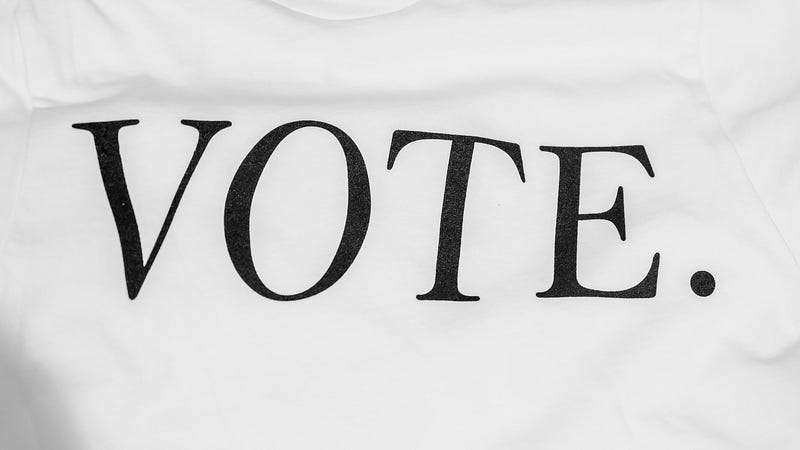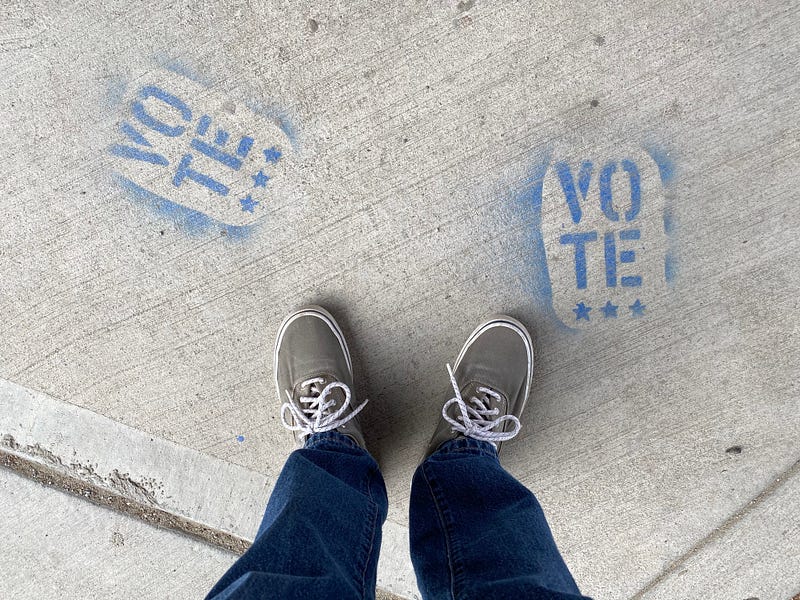Exploring AI's Influence on the Upcoming U.S. Presidential Election
Written on
Chapter 1: The Evolution of Politics and Technology
The political arena is in a state of constant transformation, with technology increasingly shaping its dynamics. In recent years, artificial intelligence (AI) has gained traction, influencing various societal sectors, including politics. As the U.S. prepares for its upcoming presidential election, the impact of AI on the electoral process and its results is undeniable. This article explores the various ways AI will influence the 2024 U.S. presidential election, focusing on campaign strategies, misinformation challenges, and voter engagement.
AI in Political Campaigns
One of the most significant ways AI is expected to impact the upcoming presidential election is through political campaigns. Candidates and their teams strive to gain an advantage, and AI serves as a powerful ally in this pursuit. Below are some applications of AI in political campaigns:
Targeting and Personalization
AI algorithms can process extensive data, revealing patterns and trends that enable campaigns to tailor messages to specific voter demographics. By utilizing AI, campaigns can engage potential voters with personalized communications based on their interests and political leanings. This tailored approach can enhance campaign effectiveness and increase the chances of swaying undecided voters.
Predictive Analytics
Using historical data and current trends, AI can forecast voter behavior. These insights enable campaigns to concentrate their efforts on crucial battleground states and demographics. By leveraging predictive analytics, campaigns can refine their strategies and improve their likelihood of success.

Combating Misinformation with AI
The rise of misinformation poses a significant challenge, especially in political campaigns. The swift dissemination of fake news can heavily influence public opinion and affect election outcomes. AI can address this issue through several mechanisms:
Fact-Checking
AI algorithms can perform automated fact-checking, identifying inconsistencies and inaccuracies in information. By analyzing text, images, and videos, AI can flag misleading content for further scrutiny, helping to reduce the spread of false information and ensuring voters have access to accurate data.
Identifying and Mitigating Deepfakes
Deepfakes, which are AI-generated videos that distort real footage to create false narratives, represent a growing concern in politics. AI algorithms can detect these manipulations by analyzing subtle audio and visual discrepancies that may elude human observation. By flagging deepfakes, AI can help mitigate their impact on public opinion.

Enhancing Voter Engagement
AI also has the potential to improve voter engagement in the next U.S. presidential election. Fostering voter participation is vital for a robust democracy, and AI can facilitate this process in a more engaging and accessible manner:
Voter Registration and Outreach
AI algorithms can identify unregistered voters and target them with personalized outreach campaigns. By tailoring the registration process to individual needs, AI can help boost voter turnout.
AI Chatbots for Voter Education
AI-driven chatbots can provide voters with essential information regarding candidates, issues, and the voting process. By delivering accurate, unbiased information in an interactive format, chatbots can educate voters and promote informed decision-making.

Potential Risks and Ethical Concerns
Despite the promising potential of AI in shaping the next U.S. presidential election, it also introduces several risks and ethical dilemmas:
Privacy and Surveillance
The use of AI for targeted messaging raises significant privacy and surveillance concerns. AI systems often depend on collecting and analyzing vast quantities of personal data, which could lead to misuse.
AI Bias
AI algorithms can inherit biases from the data on which they are trained. If the training data is flawed, the AI may perpetuate these biases, resulting in unfair targeting and messaging.

Accountability and Transparency
As AI systems grow more intricate and their decision-making processes less transparent, it becomes increasingly difficult to hold them accountable for their actions. This opacity raises concerns regarding the fairness and integrity of AI-driven political campaigns.
In conclusion, AI is poised to significantly influence the forthcoming U.S. presidential election across various dimensions. From shaping campaign strategies to combating misinformation and bolstering voter engagement, AI will play a pivotal role in contemporary politics. However, it is crucial to address the associated risks and ethical considerations to ensure responsible and equitable use of AI within the political landscape. As the election draws near, the impact of AI on the democratic process will surely become a focal point of interest and discussion.
Chapter 2: The Role of AI in Shaping Election Outcomes
The first video discusses how artificial intelligence is expected to influence the 2024 elections, exploring various implications for candidates and voters alike.
The second video examines the potential impact of AI on the 2024 elections, highlighting its significance in shaping public perception and voter behavior.
Social Media Analysis
AI can analyze social media data to offer insights into public sentiment regarding various issues. By tracking discussions on social platforms, AI can highlight trending topics, allowing campaigns to craft timely and relevant messages that resonate with voters. Furthermore, AI can identify and engage key influencers, amplifying campaign messages and expanding their reach.